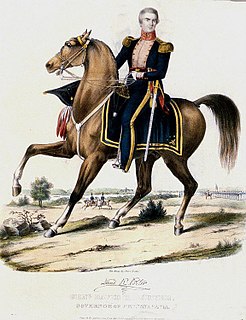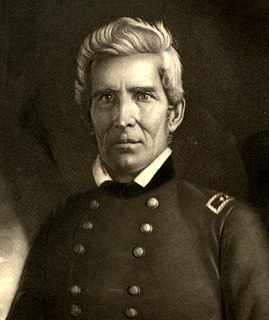
William Orlando Butler was a U.S. political figure and U.S. Army major general from Kentucky. He served as a Democratic congressman from Kentucky from 1839 to 1843, and was the Democratic vice-presidential nominee under Lewis Cass in 1848.
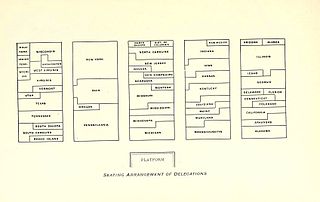
The 1896 Democratic National Convention, held at the Chicago Coliseum from July 7 to July 11, was the scene of William Jennings Bryan's nomination as the Democratic presidential candidate for the 1896 U.S. presidential election.

The 2010 Pennsylvania gubernatorial election was held on November 2, 2010, to elect the Governor and Lieutenant Governor of Pennsylvania, concurrently with elections to the United States Senate in Pennsylvania and other states and elections to the United States House of Representatives and various state and local elections.

Pennsylvania, like neighboring New Jersey, has swung from being a Republican-leaning state during much of the 20th century to a more competitive state in national presidential elections. Pennsylvania has backed the Democratic presidential candidate in every election since 1992 up until 2016, when it was won by Republican candidate Donald Trump. In 2008, Barack Obama won almost all of the Philadelphia suburbs. Statewide, John McCain won almost three times as many counties (48) as Obama (19), but Obama won the most populous counties and therefore won the popular vote for the state, carrying its 21 electoral votes.
The United States Senate elections of 1844 and 1845 were elections which, coinciding with James K. Polk's election, had the Democratic Party retake control of the United States Senate, gaining a net total of eleven seats from the Whigs.
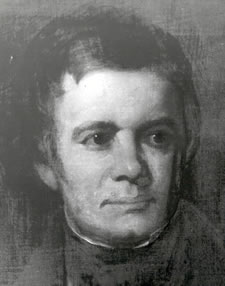
The Pennsylvania gubernatorial election of 1841 was between two candidates. Incumbent Governor David R. Porter ran for the Democratic Party, and defeated John Banks.
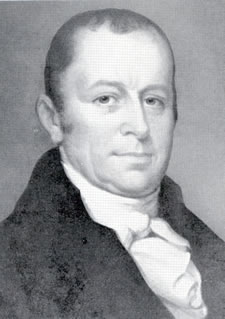
The Pennsylvania gubernatorial election of 1811 occurred on November 5, 1811. Incumbent Democratic-Republican governor Simon Snyder won re-election over Federalist candidate William Tilghman, the Chief Justice of the Pennsylvania Supreme Court, by a wide margin. Two of the major policy goals on which Snyder campaigned were increasing spending for infrastructural upgrades and authorizing the transfer of governmental operations from Lancaster to Harrisburg.

The Pennsylvania gubernatorial election of 1808 occurred on November 8, 1808. Incumbent governor Thomas McKean, a former Democratic Republican who had faced impeachment by members of his own party during the prior term, was not a candidate. Democratic-Republican candidate Simon Snyder, former Speaker of the Pennsylvania House of Representatives defeated Federalist candidate and former U.S. Senator James Ross to become Governor of Pennsylvania. Snyder, with the aid of a supportive press, campaigned as a "New School Democrat" and attempted to ally himself with James Madison. He painted the former McKean administration as elitist and advocated for popular democracy, governmental intervention in the economy, and infrastructural support for Western Pennsylvania counties.
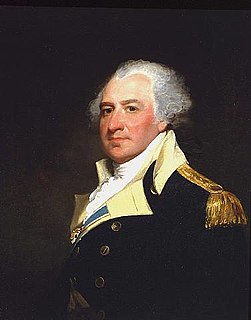
The Pennsylvania gubernatorial election of 1793 occurred on November 5, 1793. Incumbent Democratic-Republican governor Thomas Mifflin successfully sought re-election to another term, defeating Federalist candidate and U.S. Representative Frederick Muhlenberg.

The Pennsylvania gubernatorial election of 1906 occurred on November 6, 1906. Incumbent Republican governor Samuel W. Pennypacker was not a candidate for re-election. Republican candidate Edwin Sydney Stuart defeated Democratic candidate Lewis Emery, Jr. to become Governor of Pennsylvania.
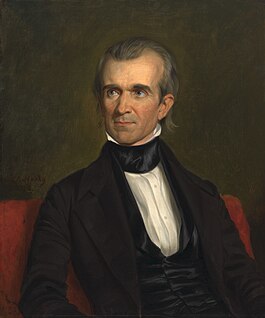
The 1844 United States presidential election in Pennsylvania took place between November 1 and December 4, 1844, as part of the 1844 United States presidential election. Voters chose 26 representatives, or electors to the Electoral College, who voted for President and Vice President.
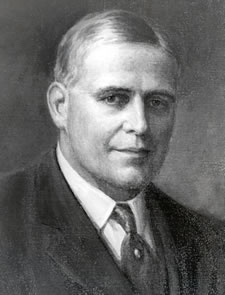
The Pennsylvania gubernatorial election of 1918 occurred on November 5, 1918. Incumbent Republican governor Martin Brumbaugh was not a candidate for re-election. Republican candidate William Sproul defeated Democratic candidate Eugene C. Bonniwell to become Governor of Pennsylvania.

The Pennsylvania gubernatorial election of 1922 occurred on November 7, 1922. Incumbent Republican governor William Sproul was not a candidate for re-election. Republican candidate Gifford Pinchot defeated Democratic candidate John A. McSparran to become Governor of Pennsylvania.
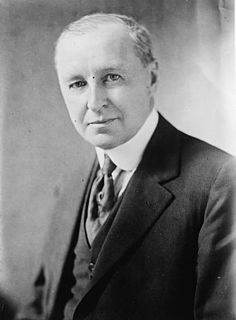
The Pennsylvania gubernatorial election of 1926 occurred on November 2, 1926. Incumbent Republican governor Gifford Pinchot was not a candidate for re-election. Republican candidate John Fisher defeated Democratic candidate Eugene C. Bonniwell to become Governor of Pennsylvania.

The Pennsylvania gubernatorial election of 1930 occurred on November 4, 1930. Incumbent Republican governor John Stuchell Fisher was not a candidate for re-election. Republican candidate and former governor Gifford Pinchot defeated Democratic candidate John M. Hemphill to win a second, non-consecutive term as Governor of Pennsylvania.

The Pennsylvania gubernatorial election of 1934 occurred on November 6, 1934. Incumbent Republican governor Gifford Pinchot was not a candidate for re-election. Democratic candidate George Howard Earle III defeated Republican candidate William A. Schnader to become Governor of Pennsylvania. This was the first Pennsylvania gubernatorial election won by the Democratic Party since 1890.

The Pennsylvania gubernatorial election of 1938 occurred on November 8, 1938. Incumbent Democratic governor George Howard Earle III was not a candidate for re-election. Republican candidate Arthur James defeated Democratic candidate Charles Alvin Jones to become Governor of Pennsylvania.
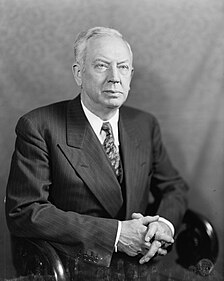
The Pennsylvania gubernatorial election of 1942 occurred on November 3, 1942. Incumbent Republican governor Arthur James was not a candidate for re-election. Republican candidate Edward Martin defeated Democratic candidate F. Clair Ross to become Governor of Pennsylvania.
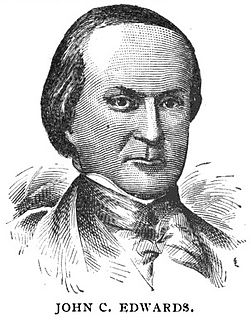
The Missouri gubernatorial election of 1844 was Missouri's eighth gubernatorial election. In the election, which was held on August 5, 1844, Missouri Secretary of State John Cummins Edwards, the Democratic nominee, defeated Whig candidate Charles H. Allen.

A general election was held in the U.S. state of Arkansas on November 6, 2018. All of Arkansas' executive officers will be up for election as well as all of Arkansas' four seats in the United States House of Representatives. Primaries were held on May 22, 2018. Polls will be open from 7:30 AM to 7:30 PM CST.
